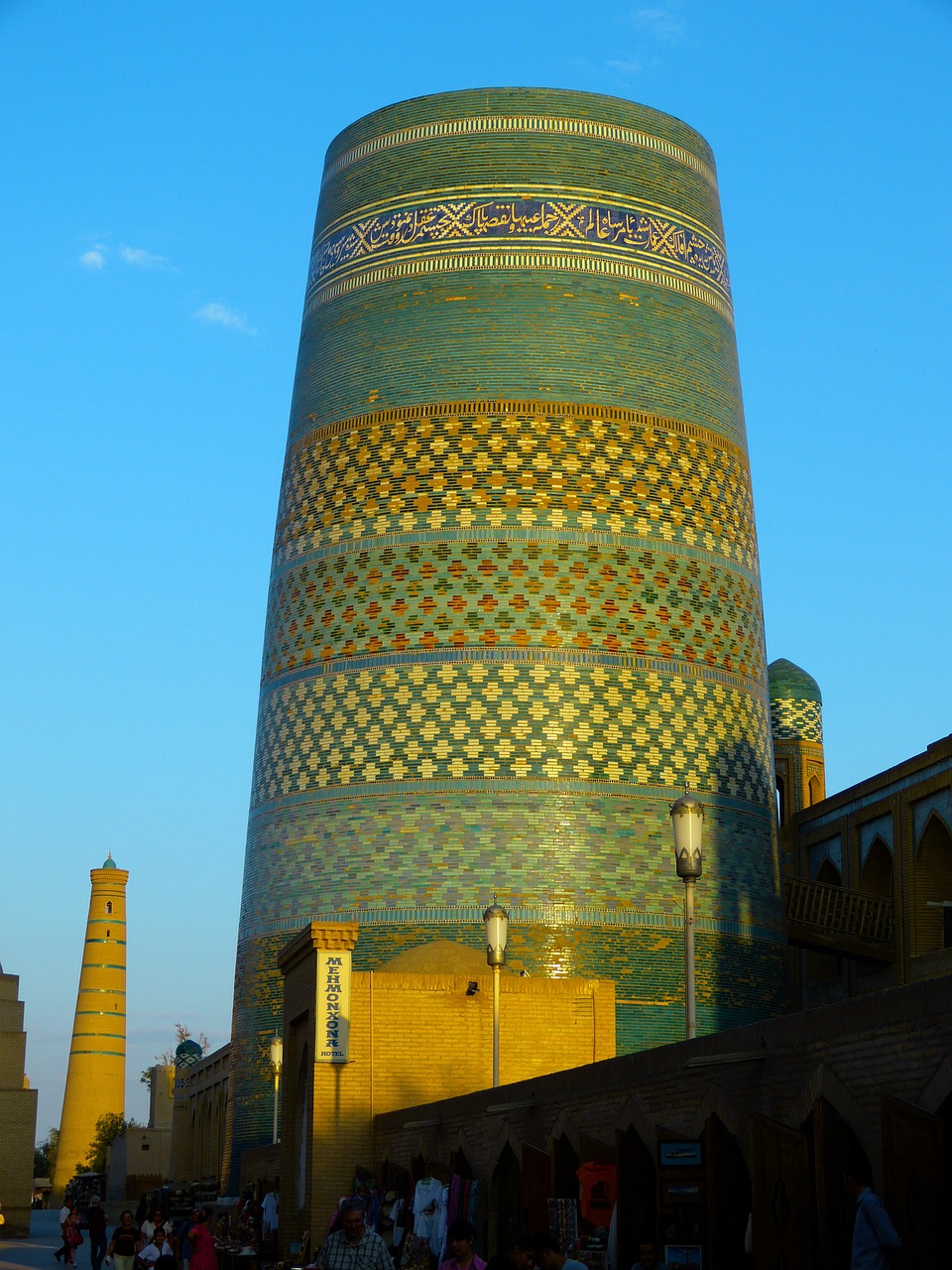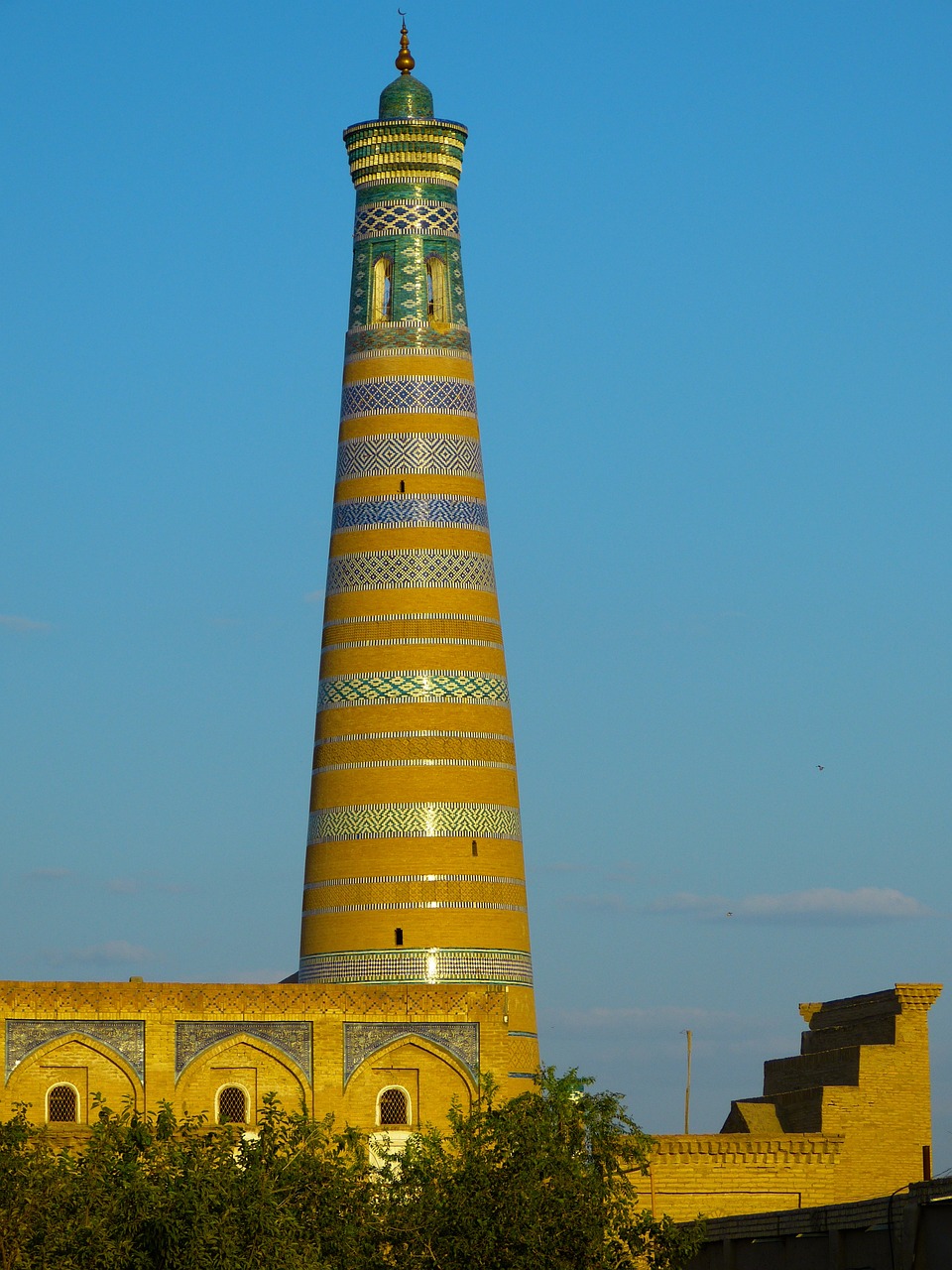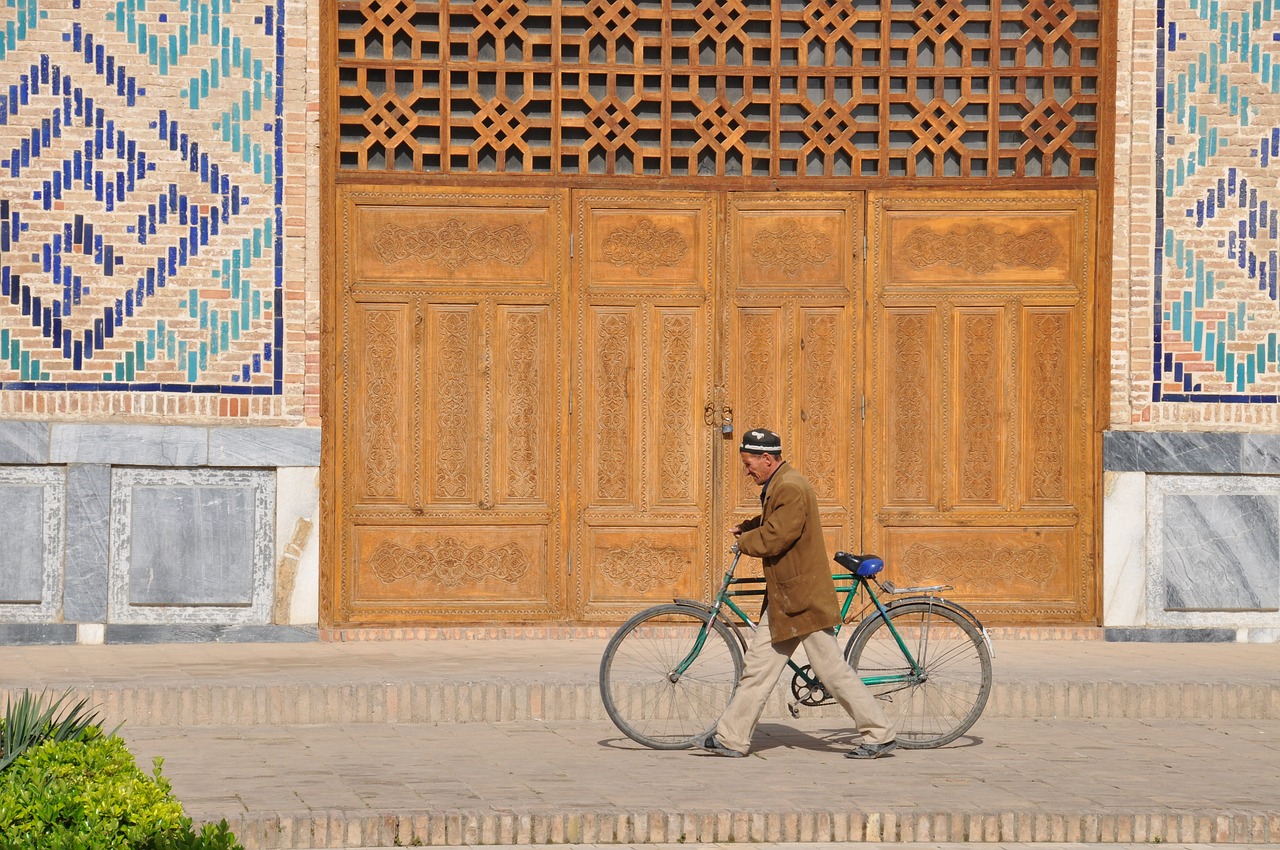Uzbekistan Video
Cultural Sensitivities: Understanding Local Norms in Uzbekistan
Uzbekistan is a beautiful country located in Central Asia, known for its rich history, stunning architecture, and vibrant culture. As a visitor to Uzbekistan, it is important to understand and respect the local norms and cultural sensitivities. This article aims to provide a comprehensive guide to help you navigate Uzbekistan’s unique cultural landscape.
Traditional Clothing
Uzbekistan is known for its colorful and intricate traditional clothing. The national dress for men is called “khalat,” which is a long robe-like garment made of silk or cotton. Women often wear “chapans,” which are long, loose-fitting dresses with colorful embroidery. When visiting religious sites or more conservative areas, it is advisable to dress modestly and respectfully, covering your shoulders and knees.
- Headscarves: Women may choose to wear a headscarf when visiting religious sites, out of respect for local customs.
- Remove Shoes: When entering someone’s home or a mosque, it is customary to remove your shoes at the entrance.
- Gifts: If invited to someone’s home, it is polite to bring a small gift, such as sweets or fruits.
- Handshakes: When greeting someone, a firm handshake is the usual practice. However, it is important to note that some locals may prefer a more reserved greeting, such as a nod or slight bow.
Food and Dining Etiquette
Uzbek cuisine is diverse and flavorful, with influences from Persian, Turkish, and Russian cuisines. When dining in Uzbekistan, there are a few cultural norms to keep in mind:
- Sharing: It is common for dishes to be shared among the group. Do not be surprised if your host or fellow diners offer you food from their plate.
- Seating Arrangements: In traditional Uzbek dining settings, men and women may be seated separately. Follow the lead of your host or the locals.
- Utensils: In more traditional settings, it is common to eat with your hands. However, utensils are also widely used, especially in urban areas and restaurants.
- Tea Culture: Tea is an integral part of Uzbek culture. It is often served before and after meals as a gesture of hospitality. Accepting a cup of tea is a sign of respect.
Religious Customs
Uzbekistan is predominantly Muslim, and Islamic customs and traditions are deeply ingrained in the culture. When visiting religious sites or interacting with locals, it is important to be respectful of their beliefs:
- Mosques: When entering a mosque, ensure that you are appropriately dressed, with your shoulders and knees covered. It is also customary to remove your shoes before entering.
- Ramadan: During the holy month of Ramadan, Muslims fast from sunrise to sunset. It is respectful to avoid eating, drinking, or smoking in public during this time.
- Friday Prayer: Friday is considered a sacred day for Muslims, and many people attend the congregational Friday prayer at the mosque. Avoid scheduling important meetings or activities during this time.
Communication and Language
The official language of Uzbekistan is Uzbek, although Russian is widely spoken, especially in urban areas. English proficiency among the general population may vary, but you can usually find English-speaking staff in hotels, tourist attractions, and restaurants.
- Basic Phrases: Learning a few basic Uzbek phrases, such as greetings and simple expressions of gratitude, can go a long way in showing respect and building rapport with the locals.
- Non-Verbal Communication: Non-verbal cues, such as maintaining eye contact and using appropriate hand gestures, can enhance communication and convey respect.
- Respectful Tone: When interacting with locals, maintaining a polite and respectful tone is highly valued.
Gender Roles and Social Interactions
Uzbekistan has a traditional society with defined gender roles and expectations. While these norms are evolving, it is important to be mindful of cultural sensitivities:
- Gender Segregation: In more traditional settings, men and women may socialize separately. Respect the local customs and follow the lead of your host or the locals.
- Public Displays of Affection: Public displays of affection, such as kissing or hugging, are generally not common in Uzbek culture. It is advisable to exercise discretion in public.
- Respect for Elders: Respecting elders is highly valued in Uzbek culture. When interacting with older individuals, use appropriate titles and show deference.
Local Customs and Taboos
Uzbekistan has a number of local customs and taboos that are important to be aware of:
- Right Hand: In Uzbek culture, the right hand is considered clean and the left hand is considered unclean. Use your right hand for greetings, eating, and giving and receiving items.
- Respecting Elders: It is customary to give up your seat to an older person on public transportation or in public spaces.
- Pointing: Pointing with your finger is considered impolite. Instead, use an open hand or nod in the direction you wish to indicate.
Uzbekistan Image 1:

Arts and Crafts
Uzbekistan has a rich tradition of arts and crafts, with intricate ceramics, textiles, and woodwork being highly prized. When purchasing souvenirs or visiting local artisans, keep the following in mind:
- Haggling: Haggling over prices is common in local markets and bazaars. However, in more formal shops, fixed prices are the norm.
- Authenticity: Be cautious of counterfeit or mass-produced items marketed as traditional crafts. Look for genuine handmade products and support local artisans.
- Photography: Always ask for permission before taking photographs of artisans or their work. Some may prefer not to be photographed.
Uzbekistan Image 2:

Festivals and Celebrations
Uzbekistan is known for its vibrant festivals and celebrations, which offer a glimpse into the country’s cultural heritage. Some of the most popular festivals include:
- Navruz: Celebrated on the spring equinox, Navruz is a joyous festival marking the New Year and the arrival of spring. It is a time of feasting, music, and traditional performances.
- Kurban Hayit: Also known as Eid al-Adha, this festival commemorates Ibrahim’s willingness to sacrifice his son. Families gather for prayers, feasts, and the distribution of meat to the less fortunate.
- Independence Day: On September 1st, Uzbekistan celebrates its independence from the Soviet Union with parades, concerts, and fireworks.
Local Transportation
Getting around Uzbekistan can be an adventure in itself. Here are some tips for navigating the local transportation system:
- Taxis: Taxis are a convenient way to travel within cities. It is advisable to negotiate the fare before getting in, or better yet, use a reputable taxi service.
- Public Transportation: Buses and minibusses, known as “marshrutkas,” are the most common form of public transportation. It is important to have small change for fares.
- Trains: Uzbekistan has an extensive railway network, connecting major cities and offering a comfortable mode of transportation for longer distances.
Uzbekistan Image 3:

Conclusion
By understanding and respecting the local norms and cultural sensitivities in Uzbekistan, you can enhance your travel experience and foster positive interactions with the local community. Remember to dress modestly, be mindful of dining etiquette, and show respect for religious customs. Embrace the rich cultural heritage of Uzbekistan and enjoy your journey through this fascinating country.
References
- uzbekistan.travel
- lonelyplanet.com
- advantour.com
- uzbekistan.org
- unesco.org


